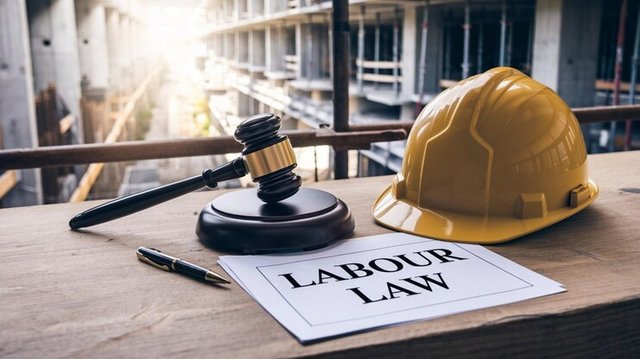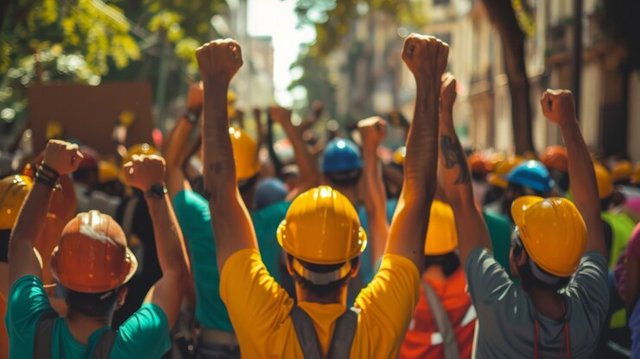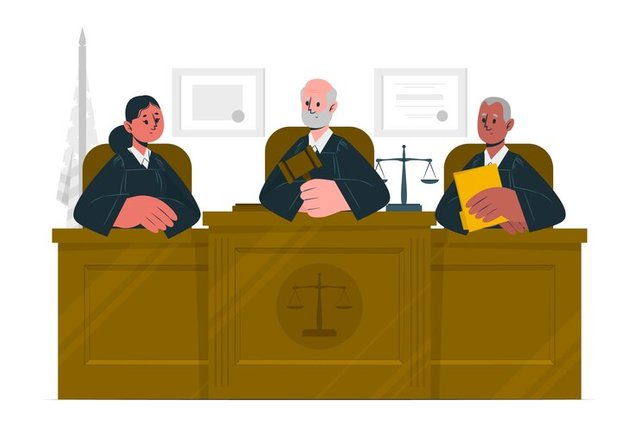SLC22-W6/ LABOR LAW
Part I
-. Based on what you have seen in class, tell us whether in your country work is considered a "duty" in addition to being a right and whether there is any legal sanction for those who do not fulfill this duty.
My country is Nigeria which in Nigeria, work is considered a right rather than a legally enforceable duty. Nigeria's constitution is big and in the "1999 constitution of the Federal Republic of Nigeria", the right to work is part of the government's objective under chapter II: is fully recognized in the constitution. Directive principles of state policy and Fundamental Objectives are chapters in the constitution that are not enforceable by law.
In addition to that, in Nigeria, there is nothing like legal sanction for an individual who does not work unless their inactivity or unemployment violates specific laws, like contractual obligations (breach of employment contracts), or vagrancy laws in some states in Nigeria. Normally in Nigeria, work is often seen as a duty that is tied to societal expectations, but it is not legally enforced in most cases as one may think.
-. State which law in your country is responsible for protecting labor rights or work rights and what do you think about that law?
In Nigeria it is the Labour Act (Cap L1, Laws of the Federation of Nigeria 2004) that is the principal law that governs labor rights and work rights. The law outlines the rights and responsibilities of employees and employers, including provisions for the following:
Employment terms and conditions of employment.
Wages, salaries, and remuneration.
Health and safety standards.
Dispute resolution mechanism.
Protection against unfair treatment and discrimination.
I think the law is good as it provides a foundation for protecting labor rights in Nigeria's application and enforcement needs to be improved to meet the demands of the modern workforce we are in, in this 21st century. I also, think the efforts to amend and strengthen labor laws would be so beneficial for both employees and employers of labor in Nigeria it is a good thing that we have such laws in Nigeria.
Part II
-. Based on what you saw in class, say which institutions are responsible for or competent to enforce labor rights.
In Nigeria, there are several institutions responsible for enforcing labor rights. Based on the ones that I know too well, there are:
Federal Ministry of Labour and Employment: This is the number one body that is responsible for labor administration in Nigeria. It is a body that oversees the policies of labor, and dispute resolution, and it ensures there is compliance with labor laws.
Trade Unions and Workers Associations: In Nigeria there an organizations like the Trade Union Congress,(TUC) and the Nigeria Labour Congress (NLC) that advocate (speak) for workers' rights and negotiate with the government and employers on behalf of employees.
National Industrial Court of Nigeria (NICN): This is a specialized court in Nigeria that has exclusive jurisdiction to adjudicate labor and employment disputes in Nigeria.
State Ministries of Labour: This is for the state level, which is a ministries that handle labor disputes and monitor compliance with employment within their jurisdictions in Nigeria.
National Human Rights Commission (NHRC): In Nigeria, this is the body that handles cases of workplace discrimination and other human rights violations that are related to employment.
-. State whether you have had an experience in the workplace in which the claim or violation of any labor right or employment right is applicable.
Yes, I have experienced a situation where my right to timely payment of salary was violated. Despite my reminders to the employer, my salary and that of other staff were delayed for months, which caused significant financial strain. However, I sought guidance from the office of the local labor in the town, which mediated between me and other staff in the company and the employer to resolve the issue. My experience makes me understand the importance of my labor rights and how I can apply legal action for resolution.
Part III
Case Study 1.
Let's assume I am a lawyer and I were assisting these workers, the principles that I would have applied to this case are rooted in labor law, contract law, and the protection of workers' rights, as it is outlined in Nigeria labor legislation and as well international labor standards. The key principles that I would have considered are:
The principle of public order and non-waver of rights
The worker's agreement to waive their rights to severance pay and also social benefits is invalid in the case because these rights are fully protected by laws and they cannot be signed away.
Also, labor rights are considered fundamental and cannot be waived or limited by an agreement, even with the worker's consent.
Principle of Reality Over Form (Primacy of Facts)
- In law, the nature of work that is to be performed takes precedence over what is being stated in the contract. However, in this case, the workers were hired as cleaning staff on paper, they performed the futures of truck drivers which entitles them to the rights and benefits that are associated with the role.
Principle of Protection of Workers
- The employer's attempt to reduce operating costs by exploiting workers and misclassifying workers' roles. Also, labor laws are designed to protect employees, especially in a situation like this where employees and employers are bargaining for power.
Principle of Social Justice and Equity
Denying workers their social benefits and severance pay violates the broader principles of social justice and equity, which is what labor law aims to promote.
Legal Remedies for The Workers
They should file a complaint with the Federal Ministry of Labour and Employment or if possible with the National Industrial Court of Nigeria to challenge the terms of their contract.
As a lawyer I will tell them to present their evidence of the actual work performed to establish their true role as drivers.
They should seek payment of the correct social benefits, severance, and wage pay owed under the law
They should argue for damage based on wrongful violation and classification of their labor rights.
Case Study 2.
The work should seek advice and as well file a complaint with the following institutions in the case of Nigeria.
National Industrial Court of Nigeria (NICN) is the institution that has exclusive jurisdiction over labor and employment disputes, including unfair labor practices and wrongful termination in Nigeria.
Actions to Take
Document the termination: Evidence of the dismissal should be gathered.
File a complaint with the Ministry of Labour: Before going to the National Industrial Court of Nigeria, the worker can complain first with the Federal Ministry of Labour and Employment.
Proceed to the National Industrial Court of Nigeria: If the mediation file by the Federal Ministry of Labour and Employment fails or the employer refuses to cooperate, then the worker should file a case at the National Industrial Court.
Request Compensation: The worker should seek remedies such as damages for unfair dismissal, severance pay, and as well reinstatement if possible.
Reason Why the Institution is Competent
The national industrial court of Nigeria is the most competent body to handle the matter because of the following:
Jurisdiction over labor disputes: The national industrial court has exclusive jurisdiction over cases involving wrongful termination, employer-employee disputes, and unfair dismissal under the Third Alteration Act of 2010 in the Nigerian constitution.
Protection Against Wrongful Termination: Under Nigerian labor laws, termination must have to follow due process.
Objective Enforcement of Labor Right: The National Industrial Court of Nigeria ensures that labor laws are fairly applied, providing employees with a platform to challenge unjust or wrongful dismissals.
Also, the Ministry of Labour is a body that acts as a neutral body that can facilitate dispute resolution between employer and employee, preventing unnecessary litigation.
I am inviting; @dove11, @lhorgic, and @ruthjoe
Cc:-
@anasuleidy



Hi @josepha , Your writing is very interesting. Some legal rules are similar to ours in Indonesia. including the absence of an obligation for citizens to work. What do you think if "no obligation" to work will increase unemployment? and does unemployment there have a bad effect on the environment like in our country? because the large number of unemployed will also suppress the rate of economic growth of a country.
Thank you for sharing, best wishes...